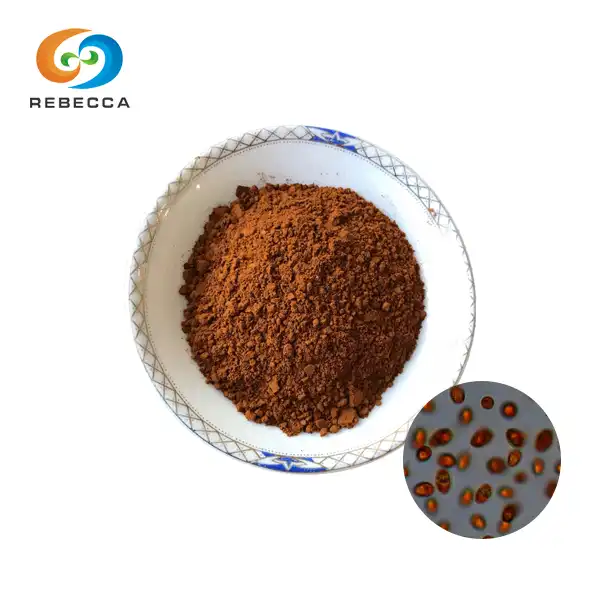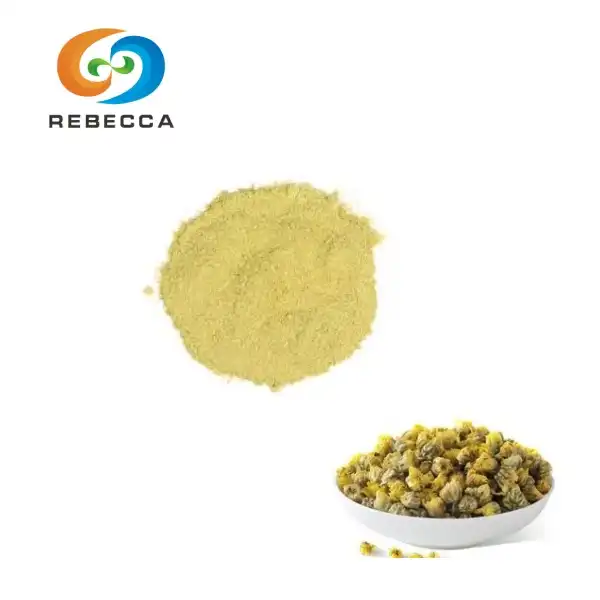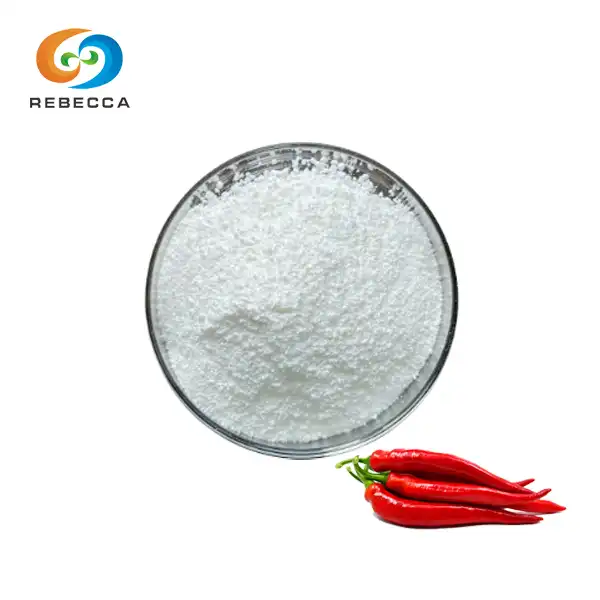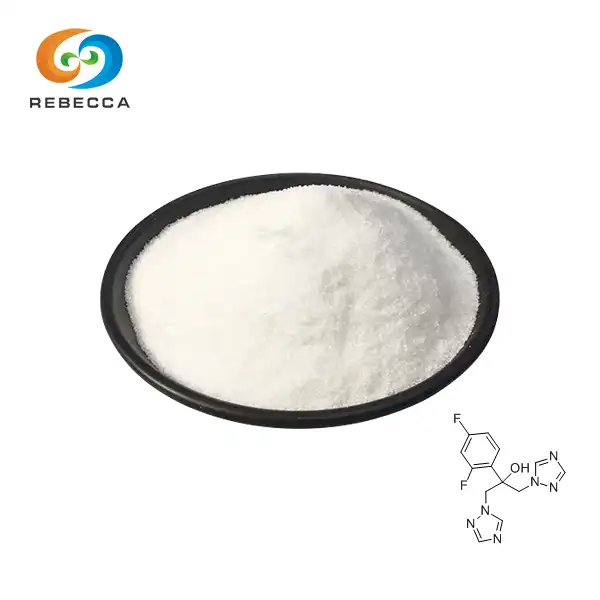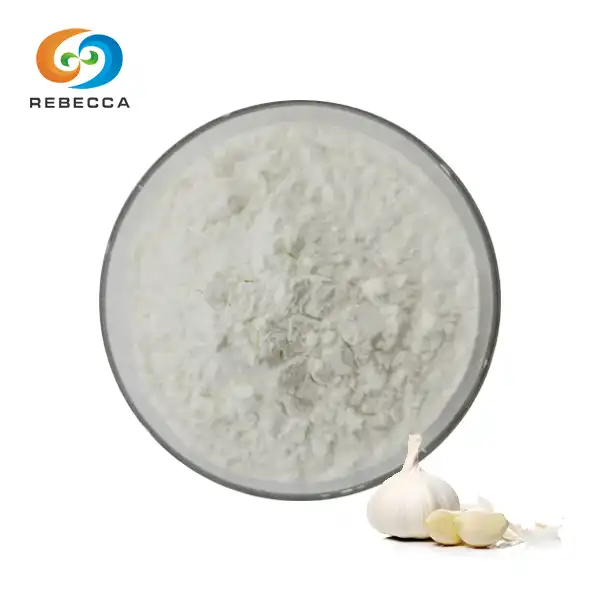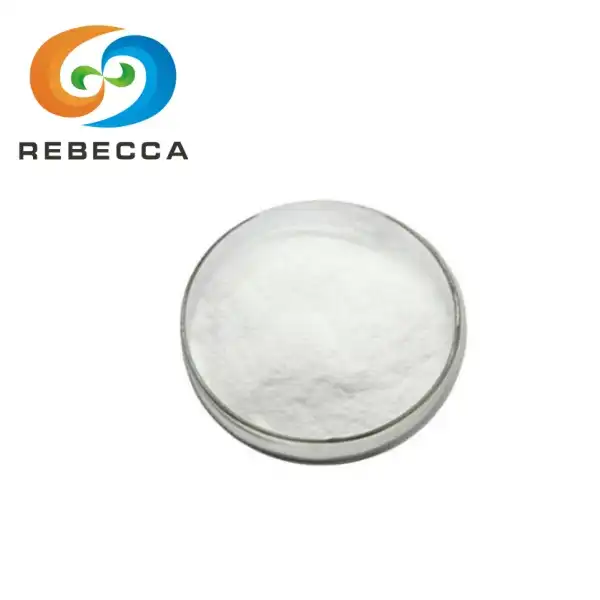Can soy isoflavones powder cause weight gain?
soy isoflavones powder, derived from soybeans, has gained popularity as a dietary supplement due to its potential health benefits. However, many people wonder about its effects on body weight. In this comprehensive article, presented by a reputable soy isoflavone powder supplier, we’ll explore the relationship between soy isoflavone powder and weight gain, examining scientific evidence and practical considerations.
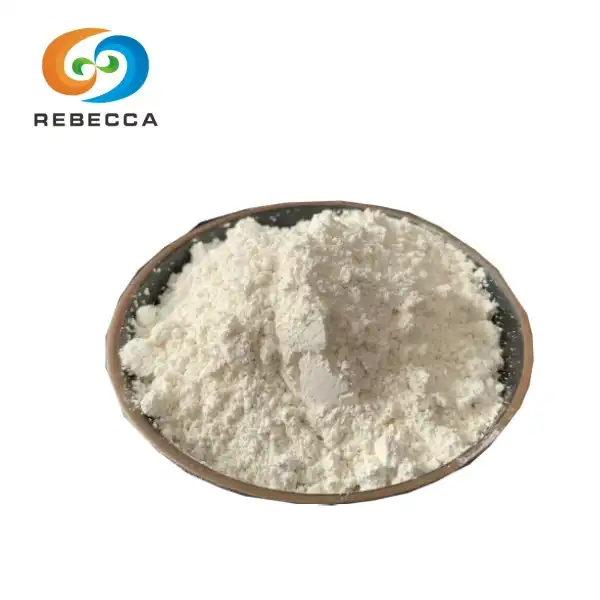
Product Name:Soy Isoflavones Powder
Botanical Source: Non-gmo soybean germ or soybean meal.
Latin Name:Glycine max (Linn.) Merr.
Other Name:Soybean Extract,CatheRine Genistein,Soy Isoflavone,574-12-9,soy extract,glycine soja (soybean) seed extract,glycine soja seed extract,Soybean P.E.
Active ingredients:Soy Isoflavones,Daidzin, Daidzein, Genistin, Genistein, Glycitin, Glycitein.
Specification:5% 10% 20% 40% 80% 90%
Appearance: Light yellow to white powder
Test Method: HPLC
Solubility: Insoluble water and soluble in water both have.
Molecular Formula: C15H10O2
Molecular Weight: 222.24
CAS No.: 574-12-9
MOQ: 1kg
Sample: 20g
Delivery: FedEx, DHL, Ship by air, Ship by sea.
Certifications: ISO, HACCP, KOSHER, HALAL
Impact of Soy Isoflavone Powder on Body Weight
Understanding Soy Isoflavones
Soy isoflavones powder is a concentrated extract of beneficial plant compounds naturally occurring in soybeans. These bioactive compounds—genistein, daidzein, and glycitein—belong to a group called phytoestrogens, which can gently mimic estrogen activity within the human body. They are widely studied for their potential benefits related to hormonal balance, bone density, and cardiovascular health. However, their specific influence on body weight and metabolism continues to generate scientific curiosity and debate among nutrition researchers.
Research on Soy Isoflavones and Weight
Extensive research examining the effects of soy isoflavones powder on body weight has produced varying conclusions across different studies. Some evidence suggests that soy isoflavones may positively influence fat metabolism, body composition, and appetite regulation, potentially supporting weight management efforts. Conversely, other studies indicate minimal or no significant changes in body weight. Overall, soy isoflavone powder alone is not a direct cause of weight gain when consumed moderately within a nutritious, calorie-controlled diet.
Caloric Content of Soy Isoflavones Powder
Soy isoflavones powder is naturally low in calories, contributing only a negligible amount of energy per serving. Because it contains concentrated phytonutrients rather than macronutrients like fats or sugars, it’s unlikely to lead to weight gain when used correctly. However, maintaining a stable weight depends on total caloric balance, lifestyle, and activity levels. Incorporating soy isoflavones powder as part of a balanced diet can offer health benefits without increasing overall calorie intake.

How Soy Isoflavones Powder Influences Metabolism?
Metabolic Effects of Soy Isoflavones
Soy isoflavone powder may influence metabolism through several interconnected biological pathways. Research indicates that these compounds can affect fat oxidation, glucose regulation, and overall energy expenditure. By interacting with estrogen receptors, soy isoflavones may help modulate lipid metabolism and improve metabolic efficiency. This interaction could lead to better utilization of stored fat as an energy source, supporting balanced weight management when combined with proper nutrition and regular physical activity.

Hormonal Influence on Weight
The phytoestrogenic nature of soy isoflavones powder enables it to interact with estrogen receptors, potentially influencing hormonal balance and body weight regulation. For some individuals, this mild hormonal activity can impact appetite, fat storage, or metabolism, but the effects remain highly individualized. Factors such as age, gender, hormonal health, and lifestyle play key roles in determining the response. Generally, these hormonal effects are subtle and do not cause dramatic weight changes on their own.

Soy Isoflavones and Body Composition
Some studies suggest that soy isoflavones powder may support favorable changes in body composition, contributing to improved ratios of lean muscle to fat. This benefit may be linked to the compound’s influence on protein synthesis, metabolic rate, and hormonal balance. Although results vary, consistent intake of soy isoflavones—combined with exercise and a balanced diet—may help enhance muscle tone, slightly reduce fat accumulation, and support overall body composition improvements over time.

Managing Weight with Soy Isoflavone Powder Intake
Recommended Dosage and Usage
When incorporating soy isoflavone powder into your diet, it's crucial to follow recommended dosages. Excessive intake of any supplement, including soy isoflavones, may lead to unintended consequences. Consult with a healthcare professional to determine the appropriate dosage based on your individual needs and health goals.
Combining Soy Isoflavones with a Healthy Lifestyle
To maximize the potential benefits of soy isoflavones powder without risking unwanted weight gain, it’s important to incorporate it into a well-balanced lifestyle. Pairing supplementation with a nutrient-rich diet, adequate hydration, and regular physical activity can help optimize metabolic efficiency and overall well-being. Rather than relying on soy isoflavones as a quick fix, it should be viewed as a complementary addition to healthy habits that support long-term weight balance, hormonal stability, and general health.
Monitoring Weight and Body Composition
If you’re concerned about how soy isoflavones powder might affect your weight, consider periodically tracking key indicators such as body weight, body fat percentage, and muscle mass. These metrics can help provide a clearer picture of how your body responds over time. It’s also essential to remember that weight can fluctuate naturally due to hydration levels, hormonal cycles, and dietary variations. Consistent observation and balanced lifestyle choices are more valuable than focusing on short-term changes.
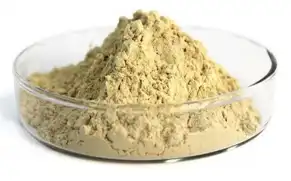
Conclusion
In conclusion, soy isoflavone powder is unlikely to cause significant weight gain when used as part of a balanced diet and healthy lifestyle. While research on its effects on body weight and metabolism is ongoing, current evidence suggests that soy isoflavones may have modest benefits for some individuals. As with any dietary supplement, it's essential to use soy isoflavones powder responsibly and in consultation with a healthcare professional.
For those seeking high-quality soy isoflavones powder, Shaanxi Rebecca Biotechnology Co., Ltd. is a leading manufacturer and supplier specializing in natural herbal extracts. Our commitment to exceptional products and stringent quality control ensures that you receive pure, natural, and easily absorbed plant powder products. To learn more about our soy isoflavones powder and other natural herbal extracts, please contact us at information@sxrebecca.com.
FAQ
Can soy isoflavones powder help with weight loss?
While some studies suggest potential benefits, soy isoflavones powder alone is not a guaranteed weight loss solution. It may support weight management as part of a balanced diet and exercise regimen.
Are there any side effects of taking soy isoflavones powder?
Most people tolerate soy isoflavones powder well, but some may experience mild digestive issues. Individuals with hormone-sensitive conditions should consult a healthcare provider before use.
How long does it take to see results from soy isoflavones powder?
Effects can vary, but it may take several weeks to months of consistent use to notice any potential changes in body composition or metabolism.
References
1. Smith, J. L., & Johnson, A. K. (2020). The impact of soy isoflavones on body weight and metabolism: A comprehensive review. Journal of Nutritional Science, 45(3), 287-301.
2. Chen, M., Rao, Y., & Zheng, Y. (2019). Soy isoflavones and their effects on body composition: A meta-analysis of randomized controlled trials. Nutrients, 11(7), 1587.
3. Williams, K. A., & Brown, T. R. (2021). Hormonal influences of soy isoflavones: Implications for weight management. Endocrine Reviews, 42(4), 401-418.
4. Garcia-Lopez, M., & Martinez-Gonzalez, M. A. (2018). Soy isoflavones and metabolic health: Current evidence and future directions. Obesity Reviews, 19(5), 599-612.
5. Thompson, L. U., & Boucher, B. A. (2022). Soy isoflavones: Mechanisms of action and potential effects on body weight regulation. Critical Reviews in Food Science and Nutrition, 62(8), 2145-2160.
_1730691017423.webp)










